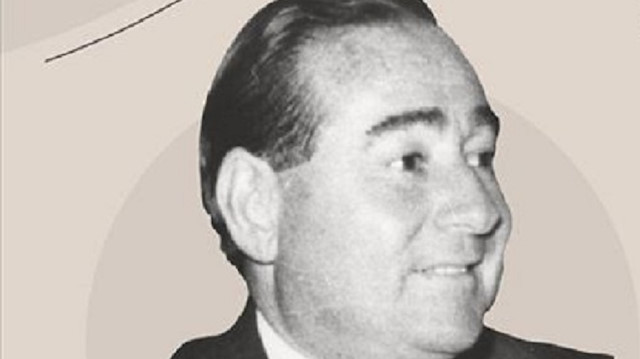
A bloody military coup 59 years ago today ousted Turkey’s first freely-elected premier who was hanged 16 months later
Adnan Menderes, Turkey’s first democratically-elected prime minister, was executed following a 1960 coup, which has come symbolize a dark period in Turkish history.
He was born in 1899 in Turkey’s western Aydin province and later attended the American College in the Aegean city of Izmir.
He fought against Greeks during the Turkish War of Independence from 1919 to 1923 and awarded a medal of honor.
After graduating from Ankara University’s Law School in 1930, he joined the Liberal Republican Party. At the personal invitation of Turkish Republic founder Mustafa Kemal Ataturk, he joined the ruling Republican People’s Party (CHP) and was elected to parliament from Aydin.
In 1945, he was discharged from the party along with MPs Celal Bayar, Refik Koraltan, and Fuat Koprulu due to inner-party opposition to the antidemocratic provisions in laws and party's bylaws, which would come to be known as the “Memorandum of the Four.”
One year later, Menderes and former Prime Minister Celal Bayar founded the Democrat Party (DP), Turkey's fourth legal opposition party to survive more than one year.
On May 14, 1950, the DP came first in that year's general elections -- its first ballot box victory -- taking 53% of the vote and claiming 408 out of 487 seats in the parliament. The DP won three consecutive general elections against the CHP until the coup in 1960.
"May 14 will always be remembered as an exceptionally important historical day which ends an era and opens another one. We remember this historic day as a victory day not only of our party but of Turkish democracy," Menderes said after the win.
As the most senior member of the group and a close confidant of Ataturk, Bayar was elected by parliament to the post of president, with Menderes becoming prime minister and the party’s formal leader.
Menderes had won over 50 percent of the vote in the 1957 general elections before he was jailed and made to stand on trial by a military regime that had overthrown his government.
He was arrested along with all leading DP members -- Fatin Rustu Zorlu and Hasan Polatkan -- following the May 27, 1960, military coup.
They were accused of violating the constitution as well as embezzling money from state funds and were put on trial by a military court on the island of Yassiada, which is seen as the symbol of the sorrows of Turkish democracy, located in the Sea of Marmara to the southeast of Istanbul.
Following a year-long trial by military court held on Yassiada, Menderes along with Zorlu and Polatkan were executed on the Island of Imrali in the Sea of Marmara.
During his tenure, Menderes enacted liberal policies in both the economic and political realms. He is known in particular for abolishing the mandatory Turkish call to prayer on June 16, 1950.
The 1960 coup paved the way for the military to overthrow governments in 1971, 1980 and 1997.
In 1990, the Turkish government said it regretted the execution of Menderes and his grave in Istanbul was turned into a mausoleum.
Being the last Turkish political leader to be executed after a military coup, Menderes' name today can be found in several public places as a mark of respect.
Hello, the comments you share on our site are a valuable resource for other users. Please respect other users and different opinions. Do not use rude, offensive, derogatory, or discriminatory language.
The floor is all yours.


